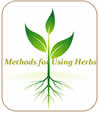Clove Syzygium aromaticum

whole cloves
- Common Names
- Clove Oil
- Botanical Name
- Syzygium aromaticum
- Syn. Eugenia caryophyllata, E. aromatica
- Family
- MYRTACEAE
Medicinal Uses & Benefits of Clove Oil
![]() How to Use|
Side Effects |
Plant & Garden|
Aromatherapy Oil |
How to Use|
Side Effects |
Plant & Garden|
Aromatherapy Oil |
- Medicinal Uses: * Aromatherapy
* Athletes Foot/Ringworm
* Ayurvedic
* Bronchitis
* Christmas
* Cramps/abdominal
* Culinary/Kitchen
* Dental/Oral Care
* Deodorants/Perfumes
* Diarrhea
* Halitosis
* Insect Repellent
* Nausea
* Nerve/Back Pain
* Pain Relief
* Scabies
* Thanksgiving Harvest
- Properties: * Analgesic * Antibacterial * Aphrodisiac * Aromatic * Digestive * EFA * Energize * Insect repellents * Mental Clarity * Mood * Warm
- Parts Used: Essential oil extracted from flower buds
- Constituents: eugenol ,gallic-acid , oleanolic-acid ,methyl-salicylate, magnesium, tannin ,vanillin
How to Use: Clove
Keeping a bottle of clove oil on hand is a very wise idea, clove oil has come to the rescue of many of use who could not get a timely dentist appointment. Clove is too useful though, to be hidden away in the first aid kit only to be brought out in times of emergency. Even for those who do not go in for aromatherapy oils as a rule, clove is a simple and effective solution in such a wide range of home remedy uses that it is pretty much indispensable. You can use the antibacterial power of clove to deter colds and viruses, by using it to disinfect the air and kill germs on surfaces. Clove is best known as an analgesic and antiseptic treatment for dental pain, and can treat gum disease and bad breath. Clove oil can also be added to massage oils to ease muscle soreness and arthritis pain. Clove is deodorizing and an antiperspirant and can be used in many personal care products, however, make sure it is well diluted in any application that requires skin contact. Clove is very useful in the kitchen, use cloves to add savory flavors to foods as well as aid in digestion. Clove eases stomach upsets and nausea. Clove oil is also one of the best essential oils for deterring ants in the home or garden.
Preparation Methods & Dosage :Clove oil can be diluted and used as a massage oil, or as a compress or poultice for ear and tooth pain. Put a few drops on a cotton ball for toothache. Use clove oil in aromatherapy lamps to disinfect rooms. Cloves can be added to herbal teas and used in cooking.
Clove Remedies
Clove : Essential Oil Profile
Clove is a powerful oil that is antibacterial, antiseptic and analgesic
 In the Kitchen: Cloves are used in many traditional holiday foods, studding hams, and
orange pomanders. Cloves are most likely underused during the rest of the
year, which is a shame because they can add strong, spicy zest to many foods,
and combine well with cinnamon, cumin and ginger. Clove also improves digestion,
which may be why there are traditionally used to spice meats. Cloves can relieve nausea and indigestion, and may relieve diarrhea caused by intestinal bacteria. The secret is
to use clove sparingly, just a pinch too much will overpower other flavors
and ruin the dish.
In the Kitchen: Cloves are used in many traditional holiday foods, studding hams, and
orange pomanders. Cloves are most likely underused during the rest of the
year, which is a shame because they can add strong, spicy zest to many foods,
and combine well with cinnamon, cumin and ginger. Clove also improves digestion,
which may be why there are traditionally used to spice meats. Cloves can relieve nausea and indigestion, and may relieve diarrhea caused by intestinal bacteria. The secret is
to use clove sparingly, just a pinch too much will overpower other flavors
and ruin the dish.
Traditional Chinese Medicine
 The fresh and dried flower buds of clove are also used in herbal formulas in traditional Chinese medicine (TCM).
The fresh and dried flower buds of clove are also used in herbal formulas in traditional Chinese medicine (TCM).
Clove Side Effects: Never use undiluted on the skin. Avoid clove oil in treating pain due to root canal work, since it may cause inflammation.
Plant Description

Koehler's Medicinal-Plants 1887
- Flowers:Small, aromatic flowers, when dried are the cloves.
- Plant Class:Evergreen tree
- Leaves:Shiny leaves
- Fruit: small, oblong fruit with little pulp, similar to the java plum
- Preferred Habitat: Humid, warm tropical climate with lots of water year-round
- Flowering Season: The flowers are picked and dried before blooming, and the essential oil is extracted from them
- Distribution:Native to the Molucca Islands (islands of Eastern Indonesia, once known as the Spice Islands.) Cultivated in Madagascar, Indonesia, and Zanzibar (Tanzania)
Regional Traditions :Ayurvedic *
History and Traditions & Folklore
The ancient Egyptians, Greeks and Romans all used cloves. Courtiers in second century China freshened their breath with cloves before seeking an audience with the Emperor.- James Duke. "The Green Pharmacy Herbal Handbook" Rodale Books, (2000) Clove's healthful help comes courtesy of eugenol, a powerful, multifaceted phytochemical that anesthetizes, kills bacteria and fungi, fights free radical oxidation and thins the blood. ,
- Karta Purkh Singh Khalsa & Michael Tierra. "Ayurvedic Herbs, The Way Of" Lotus Press, (2008) Lavanga has special benefits for nerve function, which means it balances vata.











